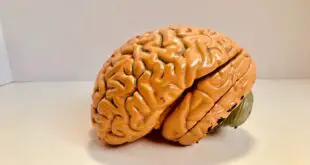What is the human condition? This has been a common question for psychologists since the onset of the course, and there have been many questions, answers, and theories in the field.
Humans are a complex species, and many factors differentiate us from each other. We have different skin colors, voices, genders, beliefs, ideologies, origins, social classes, etc.
Despite all these differences, we are human, and the human condition connects us all into one species. So, what is this crucial link? Let’s get to the details and find out;
What Is the Human Condition?
The concept of the human condition refers to shared experiences, feelings, emotions, and thoughts common to all human beings. It encompasses all aspects of human nature, including emotions, personality traits, religious beliefs, the concepts of right, wrong and evil, mortality, and everything in between.
The tenet connects all humans despite their differences and psychologically defines the species.
Understanding The Human Condition
The human condition is a complex topic subject to many discussions for centuries. It is an integral part of being human, so you should understand its important aspects: morality, mortality, and transcendence.
As each of us, as human beings, becomes conscious of these three concepts, our comprehension of the human predicament grows. Self-awareness is supposed to begin at the age of three to four. We are first conscious of pain.
When we learn about the deaths of pets, elderly family members, and friends, a sense of foreboding dawns on us. We watch movies and have terrifying dreams. We recognize we could die, but what happens next?
A feeling of right and wrong emerges around the ages of 5-7. We are taught that beating another person is wrong and that we will be punished.
Our will wants to do something, like steal a toy, but we are advised no. We learn about what is good and evil. Finally, we see a power in nature that goes beyond what we can describe in material terms.
1. Sickness and Material Contingency
We are flawed physical beings prone to illness and disease. We see strange and untimely deaths through those we love, which remind us of our eventual fate.
We live profane lives and recognize pain, whether it’s a headache, a cold, or a shattered bone. But we rarely obsess over our origins, a supreme deity, or even death and the presence of an afterlife.
As a thinking, active individual, the human being is unique. We are self-centered and prideful, yet we also have a lot of anxiety. Anxiety is an “intense concern, frequently with no clear justification.”
This persistent concern waxes and wanes subtly in most people, yet it permeates their lives. It is part of the human condition.
Aside from the classics, everyone recognizes their dependent materiality more fundamentally. As youngsters, we were plagued by childhood diseases such as measles, mumps, and chicken pox, which caused fevers, malaise, nausea, and puking.
True, they are fleeting and not life-threatening, but unpleasant, and even a young person suspects they may become ill again.
Adolescents may observe acquaintances who have died in car accidents or from disease and think, “That could have been me.”
We become more aware of how precious life is as we grow older. Obligations as a mother or father make us aware of the threats that a hostile environment poses not just to ourselves but also to our children.
Finally, as we age, the frailty syndrome becomes all too apparent as arthritis creeps into our bones, and those chest aches, real or imagined, must be dealt with.
2. The Concept of Evil
A sense of individual obligation and the concept of evil are critical aspects of the human condition. Some things are acceptable, while others are not.
This leads us to perhaps the most perplexing feature of the human condition: sin, both societal (original sin) and individual.
Humans invented the concept of sin. Animals are not capable of sinning.
This pervasive sensation of sin or having done wrong has various ramifications. The first point to make is that humans are intelligent. Animals cannot deal with abstract concepts; however, humans can. The study of right and bad behavior is known as ethics.
Everyone understands that willful murder is inherently wicked. People are also aware that there are consequences for immoral actions.
.We are all guilty in some way. Guilt is an admission of guilt for wrongdoing. It entails, in turn, an underlying human ethical sense in which we recognize good from wrong. And, by definition, guilt assumes the presence of right and wrong and moral order.
3. Belief in Transcendence
The most basic human instinct is to recognize the existence of an uncreated, supernatural, intelligent power. Every society recognizes this and has rites and rituals to acknowledge and respond to its force.
Creation myths are widespread, like attempts to explain the origins of nature and ourselves.
Homo religious is a universal manifestation. There is widespread agreement that there is a greater power and that humans depend on and are somehow obedient to this higher entity.
The God of the book’s religions (Christianity, Islam, and Judaism) is also the Aristotelian highest intelligent entity. Earth and humanity are created by and dependent on a supreme entity in each religion.
Many parts of the Judeo-Christian legacy are shared by other faiths, including a belief in God’s world creation.
Some use the ages and generations of Adam’s descendants to compute the creation date. How this is obtained is less relevant than the idea that God created and continues to preserve the world.
The Judeo-Christian concept of creation gives rise to a feeling of history, liberty, and destiny that the human condition is focused on our future, making an action that reveals our relationship with God.
Acknowledging this transcendent force is the most essential aspect of the human condition. Our reaction to it has been documented throughout human history. Less significant notions include our responses to pain and suffering and our thoughts on death, both our own and those of others.
Ways To Explore The Human Condition
You need to understand your nature as a human being by exploring the human conditions. You need to know the best ways to look into and explore the human condition, and here are some of the best tips;
Self-Education
People study the greatest thinkers in history to learn about their perspectives on life and humanity.
Whether reading a book or taking a philosophy class, knowledge of the mind and humankind can provide a wealth of basic information on the various perspectives.
You may discover that you agree with certain philosophers. Alternatively, you can combine various viewpoints to build your opinions. At the very least, when discussing the world’s finest thinkers, you can sound quite sophisticated at parties.
Trying New Experiences
The answers to the world’s most pressing concerns are unlikely to be found at home. Try new things if you want to gain a new viewpoint. Visit a foreign country. Speak with someone you would not ordinarily speak with.
For one day, put yourself in the shoes of a stranger. The more you introduce yourself to, the more you will learn about how other people perceive the world. Every person’s perspective is so restricted.
Billions of people lead complicated, intriguing, and dramatic lives. No one can comprehend everyone, but exploring new things is the best approach to understanding more people.
Write Down Your Experiences
How do you understand your surroundings? You can consider it. You may also make a note of it! When we write down our feelings, our minds process them differently than when we sit and think about them.
Write down your experiences as though they were a story. What message does your story convey regarding the human condition?
Explore the role of culture in shaping the human condition.
How can cultural norms and principles impact our perceptions of the world? How does culture shape our sense of self, belonging, and purpose?
Investigate the various ways in which different people and groups see the human condition. For example, how do racial, gender, sexuality, and socioeconomic status experiences impact our view of the human condition?
Reflect on the role of emotions and technology in the human condition.
How do feelings like joy, love, terror, and melancholy impact our perceptions of the world? How can we deal with difficult emotions like sadness and anxiety?
Consider how technology affects the human situation. How have technological improvements altered our perceptions of the world and one another? In the context of the human condition, how can we go around the problems and opportunities given by technology?
Conclusion
You now have a detailed answer to the biggest philosophical question, “What is the human condition?” Centuries of research have gone into this discussion, and this article only scratches the surface, as there are hundreds of books on the human condition.
The human condition defines a set of traits, feelings, and actions that connect all humans and define us as a species. It includes feelings and experiences that we all share throughout our lives regardless of our gender, race, social status, or location of birth.
 Being Human
Being Human



